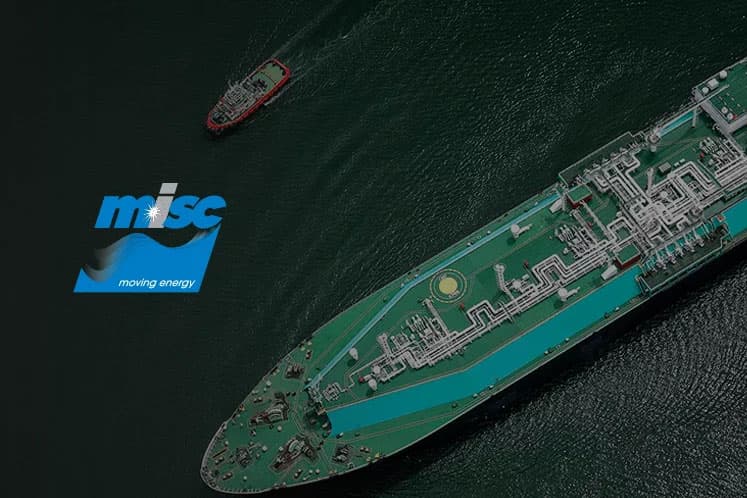
This article first appeared in The Edge Financial Daily on March 17, 2020
MISC Bhd
(March 16, RM7.35)
Upgrade to hold with a higher fair value (FV) of RM7.80: Our recommendation on MISC Bhd is upgraded to “hold” from “sell” with a higher sum-of-parts-based FV of RM7.80 per share, from an earlier RM5.60 per share, implying a financial year 2020 forecast (FY20F) enterprise value/earnings before interest, taxes, depreciation and amortisation (EV/Ebitda) of nine times — its three-year average and at 40% premium to AP Moller Maersk. Our earlier valuation was based on a five-year price-to-book value low due to the recent sharp drop in crude oil prices.
Bloomberg reported that spot petroleum tanker rates have risen 700% over the past week to US$243,000 per day due to Saudi Arabia securing additional storage capacity for the Opec production quota expiring by the end of this month.
Saudi Arabia has begun hiring 25 to 30 additional very large crude carriers (VLCC) to be deployed late this month or early April 2020 after Opec’s recent unsuccessful negotiations with Russia.
Recall Saudi Arabia’s announcement of unprecedented discounts of almost 20% in key markets, apparently targeting Russia and the US shale industry as well as other higher cost producers.
Saudi Arabia’s crude into north-west Europe, a key market for Russian barrels, will be sold at discounts to its reference price of over US$8 per barrel compared to that in March 2020. In the US, the country is set to discount its crude by US$7 per barrel in April compared to that in March. Saudi Arabia also cut prices between US$4 and US$6 per barrel in Asia.
Over the past week, Saudi Arabia, Russia, Iraq, Nigeria and the United Arab Emirates indicated plans to lift supply in the coming months. As such, crude is currently trading in a deep contango price pattern, where traders store lowly priced spot barrels at sea for sale at higher future prices.
Since the beginning of the month, Worldscale (WS) flat rates for the Arabian Gulf to Japan has surged 3.6 times to WS 172.5 level currently, while that of the Arabian Gulf to US Gulf Coast soared 5.3 times.
In our view, this rebound in tanker rates mostly impacts the VLCC segment for now given the lower storage capacities of the Aramax and Suezmax categories. However, MISC had secured long-term agreements with clients for its VLCC vessels.
Hence, our earnings forecasts for MISC are maintained as spot VLCC prices will not significantly impact the group’s earnings. Nevertheless, we view the negative sentiment on petroleum tanker demand due to Covid-19 has been partially alleviated by the said tanker rate rebound.
The stock currently trades at a fair FY20F EV/Ebitda of nine times — nearly its three-year average while supported by decent dividend yields of 4.5%. — AmInvestment Bank, March 16